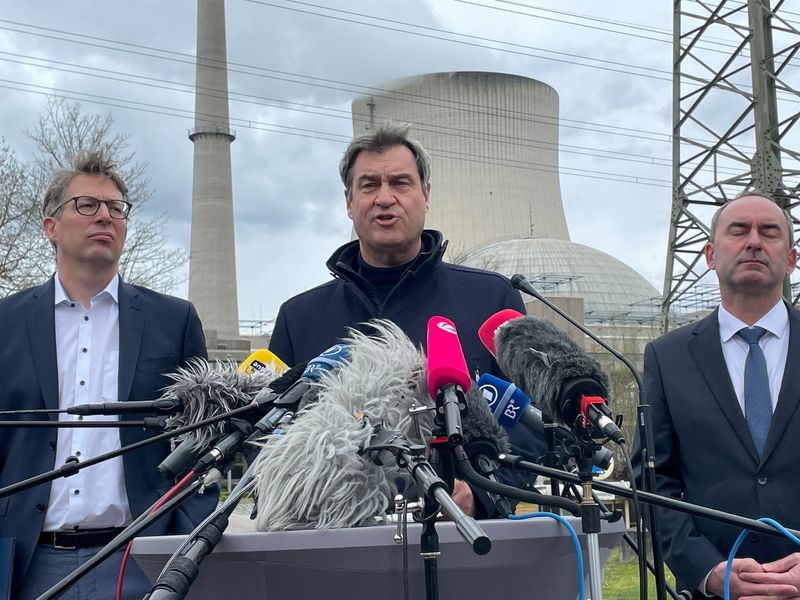BERLIN (Reuters) -Germany's Environment Ministry on Sunday rejected a demand from the state of Bavaria to allow it to continue operating nuclear power plants, saying jurisdiction for such facilities lies with the federal government.
Germany pulled the plug on its last three nuclear power stations on Saturday, ending a six-decade programme, as Berlin enacts a plan to move to fully renewable electricity generation by 2035.
The final wind-down, scheduled for the end of 2022, was delayed last summer to this year after Moscow's invasion of Ukraine prompted Germany to halt Russian fossil fuel imports and raised concerns about energy security supply.
Bild am Sonntag newspaper on Sunday said Bavarian Prime Minister Markus Soeder wanted to ask the federal government to change its nuclear exit law to allow the state to continue to operate the plants under its own jurisdiction.
"Until the crisis is over, and the transition to renewables succeeds, we must use every form of energy by the end of the decade," Soeder was quoted as saying.
The state is home to Isar II, run by German utility E.ON, which is a 1,400 megawatt (MW) plant, able to power the equivalent of a metropolis.

Environment Minister Steffi Lemke said the authorisation for Isar II had expired and restarting its reactor would require a new license.
"It is important to accept the state of the art in science and technology and to respect the decision of the German Bundestag," Lemke said in a statement sent to Reuters.